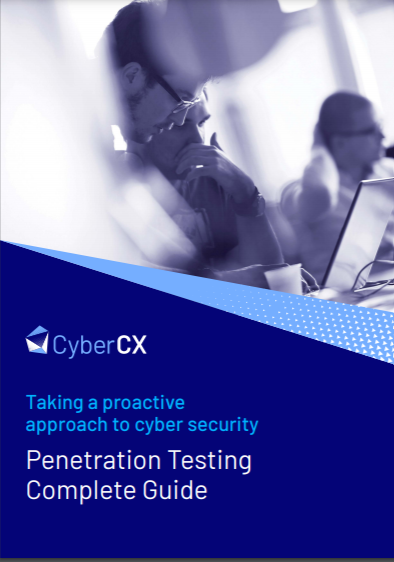Google's Project Zero trials 120 day disclosure window for new software flaws
The policy change aims to encourage businesses to apply patches while reducing the risk of opportunistic attacks


Sign up today and you will receive a free copy of our Future Focus 2025 report - the leading guidance on AI, cybersecurity and other IT challenges as per 700+ senior executives
You are now subscribed
Your newsletter sign-up was successful
Google’s Project Zero team has updated its vulnerability disclosure policies to introduce a 30-day cushion for businesses to apply patches to the flaws it discloses before revealing any precise exploit mechanisms.
Currently, the security research team adheres to a disclosure windows lasting 90 days, which lasts from the point a vulnerability is reported to a vendor to when they make it public, in order to give software vendors enough time to develop a patch behind the scenes.
Project Zero's new trial, however, will see the team tack on an additional 30 days to the original window before publishing any technical details, including details behind zero-day vulnerabilities. This will be cut to a period of seven days for bugs that hackers are actively exploiting.
Project Zero is making these changes to encourage faster patch development, to ensure that each fix is correct and comprehensive, and to shorten the time between a patch being released and users installing it.
The team also wants to reduce the risk of opportunistic attacks immediately after technical details are revealed. Flaws in F5 Networks' BIG-IP software suite serves as a recent example for this phenomenon, where hackers began scanning for vulnerability deployments shortly after technical details behind a handful of critically-rated flaws were published.
The trial is significant as many security research teams across the industry seek to mould their own disclosure policies around those adopted by Project Zero. The success of this trial, therefore, could pave the way for industry-wide changes.
For example, when Project Zero first introduced an automatic 90-day disclosure window in January 2020, a host of other teams shortly followed suit, including Facebook’s internal researchers in September that year.
Sign up today and you will receive a free copy of our Future Focus 2025 report - the leading guidance on AI, cybersecurity and other IT challenges as per 700+ senior executives
“Much of the debate around vulnerability disclosure is caught up on the issue of whether rapidly releasing technical details benefits attackers or defenders more,” said Project Zero’s senior security engineering manager, Tim Willis.
“From our time in the defensive community, we've seen firsthand how the open and timely sharing of technical details helps protect users across the Internet. But we also have listened to the concerns from others around the much more visible "opportunistic" attacks that may come from quickly releasing technical details.”
RELATED RESOURCE

He added that despite continuing to believe that quick disclosure outweighs the risks, Project Zero was willing to incorporate feedback into its policies. “Heated discussions” about the risk and benefits of releasing technical details, or proof-of-concept exploits, have also been a significant roadblock to cooperation between researchers and vendors.
Project Zero will, in future, explore reducing the initial 90-day disclosure window in order to encourage vendors to develop patches far quicker than they currently do, with the aim of one day adopting something closer to a 60+30 policy. Based on its data, the team is likely to reduce the disclosure window in 2022 from 90+30 to 84+28.
Although vendors often do release patches in a timely manner, one of the biggest challenges in cyber security is encouraging customers to actually apply these updates to protect themselves against potential exploitation.
There are countless examples of patched vulnerabilities that are still being actively exploited because organisations have failed to apply the relevant updates.
The Cybersecurity and Infrastructure Security Agency (CISA), for instance, revealed in 2020 that many of the top-ten most commonly exploited flaws were those for which patches have existed for years. As of December 2019, hackers were even exploiting a vulnerability in Windows common controls that Microsoft fixed in April 2012.
As the trial unfolds in the coming months, Project Zero has encouraged businesses keen to understand more about the vulnerabilities being disclosed to approach their vendors or suppliers for technical details.
The team won’t reveal any proofs-of-concept or technical details prior to the 30-day window elapsing unless there’s a mutual agreement between Project Zero and the vendor.

Keumars Afifi-Sabet is a writer and editor that specialises in public sector, cyber security, and cloud computing. He first joined ITPro as a staff writer in April 2018 and eventually became its Features Editor. Although a regular contributor to other tech sites in the past, these days you will find Keumars on LiveScience, where he runs its Technology section.
-
 Pulsant unveils high-density data center in Milton Keynes
Pulsant unveils high-density data center in Milton KeynesNews The company is touting ultra-low latency, international connectivity, and UK sovereign compute power to tempt customers out of London
-
 Anthropic Labs chief claims 'Claude is now writing Claude'
Anthropic Labs chief claims 'Claude is now writing Claude'News Internal teams at Anthropic are supercharging production and shoring up code security with Claude, claims executive
-
 Experts welcome EU-led alternative to MITRE's vulnerability tracking scheme
Experts welcome EU-led alternative to MITRE's vulnerability tracking schemeNews The EU-led framework will reduce reliance on US-based MITRE vulnerability reporting database
-
 Veeam patches Backup & Replication vulnerabilities, urges users to update
Veeam patches Backup & Replication vulnerabilities, urges users to updateNews The vulnerabilities affect Veeam Backup & Replication 13.0.1.180 and all earlier version 13 builds – but not previous versions.
-
 Two Fortinet vulnerabilities are being exploited in the wild – patch now
Two Fortinet vulnerabilities are being exploited in the wild – patch nowNews Arctic Wolf and Rapid7 said security teams should act immediately to mitigate the Fortinet vulnerabilities
-
 Everything you need to know about Google and Apple’s emergency zero-day patches
Everything you need to know about Google and Apple’s emergency zero-day patchesNews A serious zero-day bug was spotted in Chrome systems that impacts Apple users too, forcing both companies to issue emergency patches
-
 Security experts claim the CVE Program isn’t up to scratch anymore — inaccurate scores and lengthy delays mean the system needs updated
Security experts claim the CVE Program isn’t up to scratch anymore — inaccurate scores and lengthy delays mean the system needs updatedNews CVE data is vital in combating emerging threats, yet inaccurate ratings and lengthy wait times are placing enterprises at risk
-
 IBM AIX users urged to patch immediately as researchers sound alarm on critical flaws
IBM AIX users urged to patch immediately as researchers sound alarm on critical flawsNews Network administrators should patch the four IBM AIX flaws as soon as possible
-
 Critical Dell Storage Manager flaws could let hackers access sensitive data – patch now
Critical Dell Storage Manager flaws could let hackers access sensitive data – patch nowNews A trio of flaws in Dell Storage Manager has prompted a customer alert
-
 Flaw in Lenovo’s customer service AI chatbot could let hackers run malicious code, breach networks
Flaw in Lenovo’s customer service AI chatbot could let hackers run malicious code, breach networksNews Hackers abusing the Lenovo flaw could inject malicious code with just a single prompt